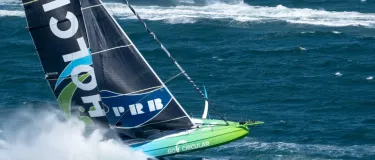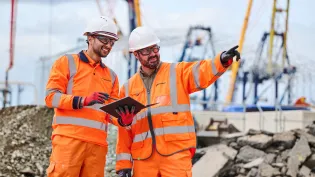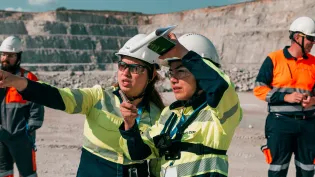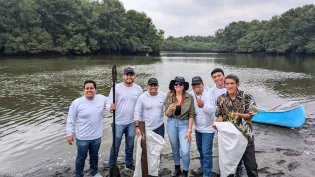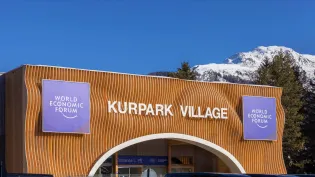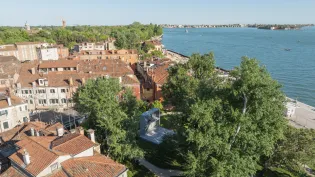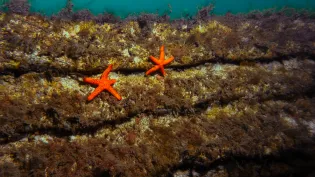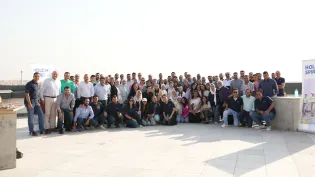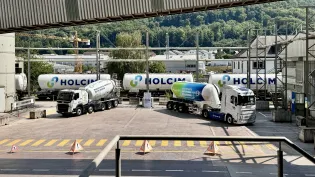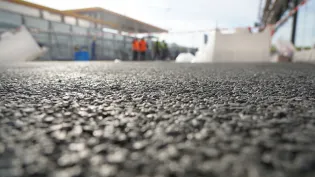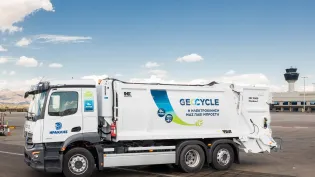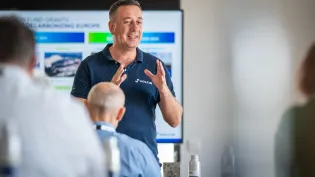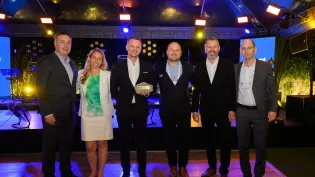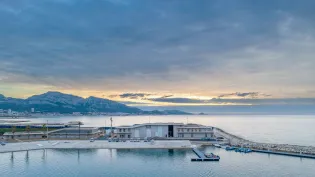Racing for our ocean: in conversation with Richard Brisius
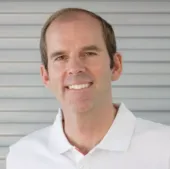
RICHARD BRISIUS
Race Chairman of The Ocean Race
Team Holcim-PRB has unveiled its crew for the highly anticipated 2025 Ocean Race Europe, with Dutch skipper Rosalin Kuiper at the helm. Together, these five sailors form a high-caliber team that blends technical skill and diverse experience — a crew well-equipped to take on the challenges of The Ocean Race Europe.
But The Ocean Race is much more than racing – it’s about racing with a purpose. It’s on a mission to be a catalyst for change by accelerating the protection and restoration of our ocean and seas. This mission symbolizes Holcim’s net-zero journey and commitment to sustainability. We sat down with Richard Brisius, Race Chairman of The Ocean Race, to get his perspective on the role of this challenging sport in advancing ocean science and what we have to look forward to during The Ocean Race Europe 2025.
What role does The Ocean Race play in advancing ocean science?
The ocean is really this planet. I would even say that we should call it planet Ocean, not planet Earth. Yet very little is still known about the ocean in comparison to the ecosystems around us on land. There is a big lack of science data from the oceans. And, in particular, there's a big lack from the areas where very few people go.
With The Ocean Race, we've been racing around the world for over 50 years. For the last eight years, as we race we also gather ocean science data. We are running a learning program all the time. Why do we do that? Well, because we are true to our purpose. Our purpose is to do everything possible to restore the health of the ocean and do that by bringing people together who are achieving the extraordinary – for example, Team Holcim-PRB. At the core of The Ocean Race, it's the sailors who are doing the extraordinary and inspiring all of us to do the extraordinary for the ocean. I’m very proud of what sailors like Nicolas Lunven and Rosalin Kuiper are doing for the ocean.
As part of its continued dedication to environmental stewardship, Team Holcim-PRB will once again champion sustainability in The Ocean Race Europe. The team will use The Ocean Race Science Instruments, a device collecting valuable oceanographic data, contributing to a deeper understanding of the climate and its impact on the oceans. This initiative builds on the team's commitment during The Ocean Race 2022-2023 and the 2024-2025 Vendée Globe, further solidifying Holcim-PRB’s mission to combine top-tier sporting performance with citizen science initiatives.
What data do the sample collection tools gather?
In the last edition of The Ocean Race all the racing boats were equipped with a science device, cutting-edge monitoring systems built for the extreme conditions of offshore racing. As sailors push the limits, flying on foils and breaking speed records in the harshest environments, the Science Instruments continuously records vital oceanographic data - dissolved oxygen, CO2, temperature, and salinity. This was very important because there is so little data about these things. And because of the high speeds at teams like Holcim-PRB sail it, it means that they cover a lot of areas in a short time, which is invaluable.
The data give us a snapshot of a large part of the ocean in a short time period. This is really unique because otherwise we mostly rely on drifter buoys that do not cover such large swathes of the ocean or a big expedition vessel that is on its way somewhere at lower speeds. So, I can’t stress it enough, It's really unique data.
For The Ocean Race 2023, the teams gathered data on the amount of microplastics around the world. This is probably the most difficult thing to measure, but by using cutting-edge methods, researchers were able to measure microplastics as small as 0.03 millimeters, ten times smaller than traditional techniques allow. This breakthrough revealed unprecedented concentrations of microplastics in some of the most remote parts of the world and in European seas. The sobering results showed that three of the world’s top five hotspots for marine microplastic pollution are in Europe, and there is an overwhelming tendency for microplastics to derive from the microfibers of synthetic clothing and textiles. The microplastics were found everywhere we went – even in Point Nemo, the most remote point on the planet. This kind of data is vital to pushing for stricter legislation to bring down microplastic pollution: we shared these findings during a crucial week of Intergovernmental Negotiating Committee (INC) meetings in South Korea at the end of 2024 , where representatives from UN member states are discussing international legislation on plastic pollution.
How can sport enhance collaboration to improve the state of our ocean?
As a sport, we are the body that very few people think about when it comes to tackling environmental issues. Yet, we find that we are a very good convener of all these different stakeholders in society that we need to make progress happen. But if you want to make progress, you have to bring everyone with you. To use a sports metaphor: while we want to be very fast and break a new 24-hour record every day, we have to respect that by taking it step by step and bringing everyone along with us, the power can become larger to help us win the ultimate race – the race for our ocean.
how is The Ocean Race Europe 2025 shaping us?
The Ocean Race Europe starts on August 10th in Kiel (Germany), then goes to Portsmouth (UK). We have a fly-by of Matosinhos-Porto before we race into the Mediterranean to Cartagena (Spain), up along the south of France (with a stop in Nice) to Genova, and then all the way around Italy into the Adriatic Sea before finishing in Montenegro. And this is a really nice race format because it's intense. You arrive in a new, beautiful European city every weekend, and there's a lot of people engaging locally. Of course, one of the aims for the teams is to fight to win the big trophy. But it's also a competition and a race for the ocean. We might not realize it, but there's also a lack of data even from European waters. There are still major blind spots, especially in coastal zones that see lots of cargo ship traffic. Even in Europe, data on CO2 fluxes or deoxygenation is often missing or fragmented. The teams competing in The Ocean Race Europe will help fill some of these gaps by collecting this missing data and advocating for a better understanding of the ocean’s role in our climate.



